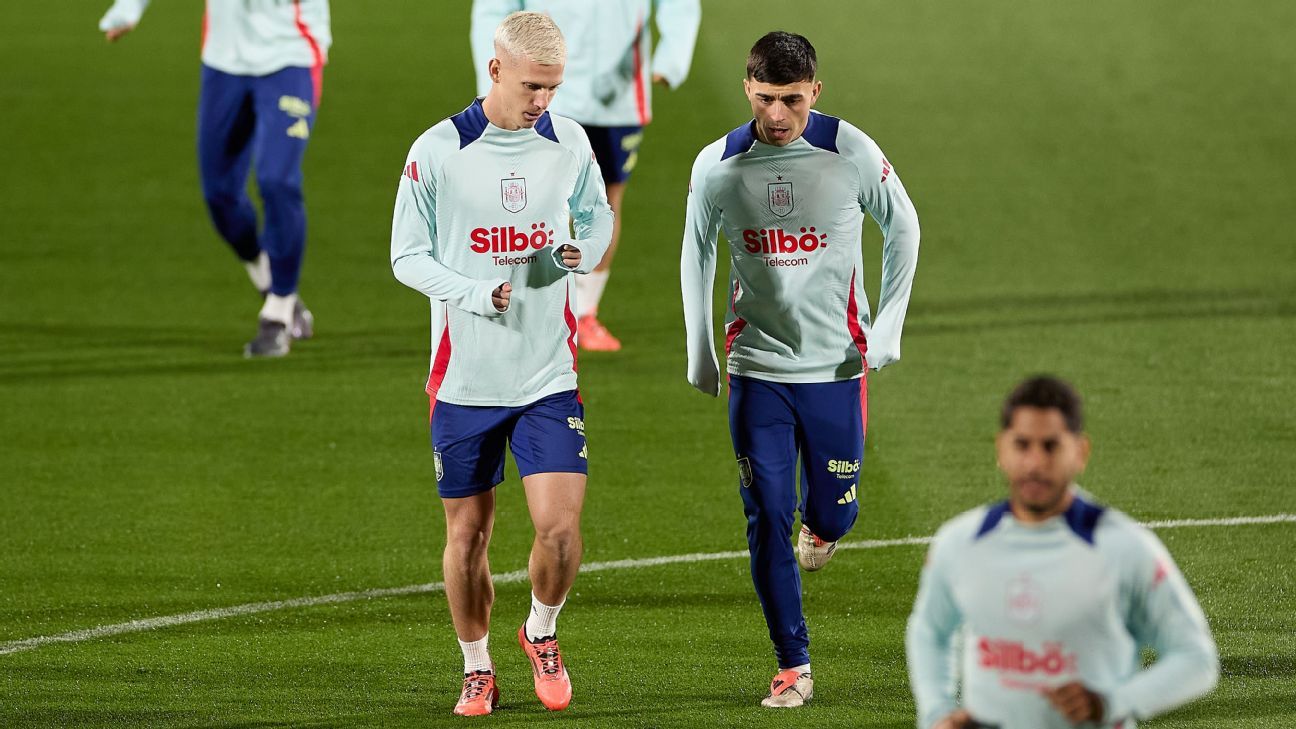
Tim Vickery, South America correspondentJan 31, 2024, 05:09 AM
There was no need for Marcelo Bielsa's trademark bucket on the touchline when his Uruguay side met Peru in the South American Under-23 Championships on Tuesday. The famous coach was not taking his characteristic sequence of tiny steps up and down the side of the pitch, head bowed as if searching for a lost wedding ring. Bielsa was not present to watch his team score a splurge of goals either side of half-time to win 3-0. He was suspended after picking up yellow cards in Uruguay's previous two games, defeats to Paraguay and Chile that left his men on the verge of elimination from the tournament.
Bielsa overdid the protests as he howled in dismay during those previous two defeats. He knew there was plenty at stake. True, this is only the South American Under-23 Championships, but it is the gateway to the Olympic Games and there are only two slots available. Uruguay are now out of the running. The convincing win over Peru left hopes flickering of a rescue, but for Uruguay to have any chance of staying alive in the competition, Bielsa's native Argentina could not beat Chile in the next game. Argentina won 5-0, and their meeting with Uruguay on Friday is now meaningless, and especially melancholic for Bielsa and for Uruguay.
- Stream on ESPN+: LaLiga, Bundesliga, more (U.S.)
The Albiceleste are coached by Javier Mascherano, who was part of the team 20 years ago when Argentina won the gold medal at the Athens Games. The winning coach was Bielsa, and that triumph remains his only international title.
And if Olympic football has plenty of significance for Bielsa, it means much more to his current employers. The Uruguay national team are still referred to as La Celeste Olímpica, the Olympic Sky Blues, and they have not taken part in the tournament since 1928. Making it to the Paris Games was especially important to them.
It was exactly a 100 years ago in Paris when an unheralded Uruguay side arrived for the Olympic tournament and changed the modern game. They cruised to the gold medal in such exhilarating style that set off a fever for the sport and made the World Cup an inevitability. Four years later, they defended their title in Amsterdam. These are Uruguay's only gold medals in Olympic history, and the country gives them the same weight as their World Cup triumphs of 1930 and 1950 -- the reason that the senior national team plays with four stars on the shirt.
This under-23 team have a special shirt commemorating the feat of a century ago. The juxtaposition of "Paris" and "24" goes straight to the centre of the Uruguayan soul. The Sky Blues simply had to be there this summer. When Bielsa took the Uruguay job he made a point of taking charge of this team as well. Many of them won last year's Under-20 World Cup and the high hopes seemed justified, especially when the team raced into a 2-0 lead against Paraguay with some 10 minutes on the clock. So what went wrong?
The task was probably harder than it looked. Ecuador found this out in the previous version of this tournament, four years ago. They took a fine team from the previous year's under-20 competitions -- they came third in the World Cup and were South America champions -- and were eliminated without scoring a single goal. A side formed essentially of under-21 players is giving away important years in an under-23 competition -- especially when some of the older names fail to step up.
Senior international winger Cristian Olivera -- the type of player that Bielsa values so much -- was not allowed to step up. He was pulled out by his MLS club LAFC on the eve of the competition. Orlando City SC central midfielder César Araujo was a massive disappointment in the first two games, without the precision in his passing of Fabricio Diaz, last year's under-20 captain who has subsequently joined Qatari club Al Gharafa. Another of the older names, playmaker Tiago Palacios, missed several chances that would have put the game to bed when Uruguay were ahead and flying against Paraguay.
Part of the blame, though, is clearly Bielsa's. He has never been the greatest defensive organiser, and surely blundered by leaving out centre-back Sebastian Boselli, perhaps the outstanding player in Uruguay's under-20 triumphs, for the opening game against Paraguay. Seemingly wanting a left foot to play out from defence, Bielsa improvised midfielder Santiago Homenchenko as a centre-back. It was not a success, and Homenchenko was exposed against a Paraguay side operating with a dogged fury inside their limitations. What at one stage looked like a comfortable win turned into a 4-3 defeat.
The coach must also bear some responsibility for the failure of his side to deal with scoreboard pressure. As Paraguay fought back hard, Uruguay could not regain their early fluency. And then, against a cautious Chile, Bielsa's men attacked without conviction and were picked off on the break in a 1-0 defeat. They seemed unable to get behind the Chileans' back three, and all of Bielsa's substitutions seemed to leave his team more exposed without adding extra penetration. The yellow cards he picked up for protesting were as much of anything gestures of impotent frustration at his failure to change the course of the matches.
Bielsa's work with the senior side has got off to an impressive start, with a rebuilt young team stringing together fine wins against Brazil and Argentina. But World Cup qualification does not resume until September. Before then the nation was looking forward to cheering on its team and celebrating its own past in the Paris Olympics. But now Uruguay must watch sadly from the sidelines as Argentina, Brazil, Paraguay and either Ecuador or Venezuela battle for the right to represent South America this summer.
 (1).png)
 11 months ago
24
11 months ago
24













